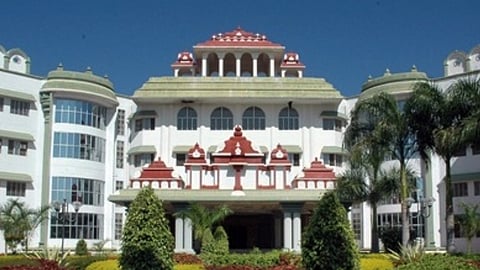
- News
- Columns
- Interviews
- Law Firms
- Apprentice Lawyer
- Legal Jobs
- हिंदी
- ಕನ್ನಡ

The Madras High Court recently held that minority educational institutions that receive financial aid from the State are bound to follow the principles of secularism and cannot appoint staff from just one particular religion.